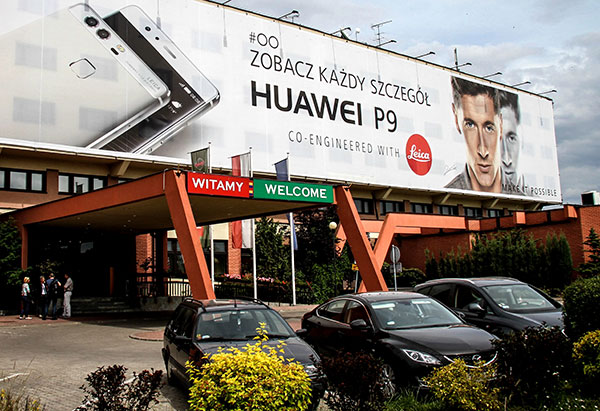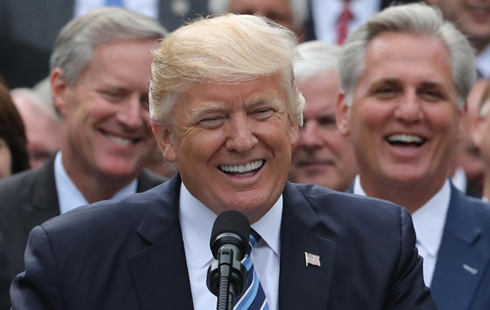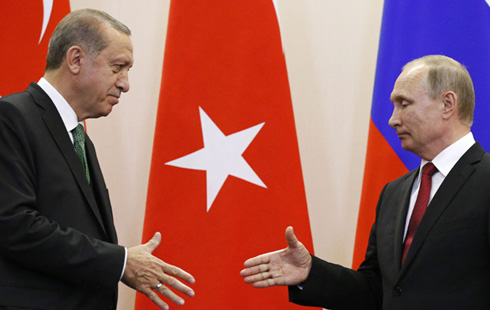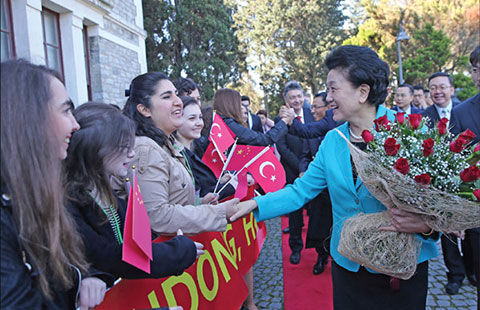Local businesses look to exploit investment potential
|
 |
When China identified Poland as a key European player in the Belt and Road Initiative, many in the Polish business world saw dollar signs.
They reasoned that enhanced political engagement would surely mean an injection of Chinese money into the Polish economy. To an extent, this has been the case: in 2014, Chinese funding accounted for 0.25 percent of total foreign investment in Poland, and last year, it rose to 1.2 percent.
Last year, 880 Polish companies received Chinese capital, according to a report in the economics journal Rzeczpospolita. The country's energy, machinery, electronic manufacturing, business and trade services, real estate and biomedical industries were all targeted by Chinese investors.
China's Everbright was involved in one of the biggest deals, paying 123 million euros ($134 million) for a majority stake in the Polish waste management company Novago, while LED manufacturer Hongbo Clean Energy announced plans to build a new high-tech complex in the town of Opole.
However, in terms of monetary value, Chinese investment into Poland was just 420 million euros last year. That was dwarfed by the 2.1 billion euros Chinese investors pumped into Hungary, far less than the 741 million euros that went to Romania, but on a par with the much smaller Greek economy, which received 405 million euros, according to Rzeczpospolita.
Poland is open to "brave and bold Chinese investment projects", according to Slawomir Majman, managing director of Europe strategic investments at the Warsaw office of multinational law firm Dentons, which merged with Dacheng, a Chinese counterpart, in 2015.
"We are very much dedicated to the Belt and Road Initiative, which President Duda has called the greatest geopolitical concept of the 21st century," said Majman, who also heads the Polish Council on the New Silk Road.
He identified key areas where Polish and Chinese investment aspirations need to be aligned. Poland heavily promotes green field investment, where companies establish operations from the ground up, as Chinese telecom giant Huawei has done in Poland, where it employs 500 people. Majman said this contrasts with the majority of Chinese investors who look to Europe specifically for mergers and acquisitions.
That sentiment was echoed by Damian Wnukowski, analyst at the Polish Institute of International Affairs.
"The case of Novago is quite interesting because the company has a lot of innovation in waste management and alternative fuels," he said. "It's something that can be put in the framework of Chinese interest in companies in modern economies. These are high-value-added companies and we don't have so many of them, so we are not so attractive from this point of view."
Majman said another issue is the lack of information and exchanges between the business communities in the two nations: "Proper exchanges have only happened during the last decade, our shared business relations and human resources are not so developed."
Bogdan Goralczyk, a diplomat and sinologist at the University of Warsaw, said the lack of information and exposure is an issue. He is lobbying to establish a Polish think tank that will focus on the Far East.
"We are still in the process of getting to know each other. China is not covered well by the Polish media, and there is no pro-Chinese lobby in parliament whatsoever," he said. "I think that it is absolutely necessary to have expert eyes advising politicians on issues concerning China."




















